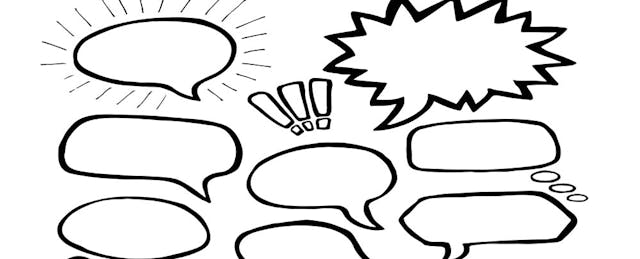Stop checking fivethirtyeight.com. Say goodbye and good riddance to those vitriolic political ads. The presidential election is over. But four years can pass quickly, and if colleges can’t lead productive discussions of sensitive topics in their classrooms, can we expect the discourse in future elections to be any better?
At Harvard Law School, where admission is a veritable pass to a life of leadership, longtime professor Charles Nesson says the Internet has been “crippling” for classroom discussions. “Even when laptops are closed, you still feel the danger of being in a completely connected environment,” he observes. “People are cautious on issues that engage real diversity and real difference. I think it’s tremendously challenging to law teachers, to socratic teachers. A lot of faculty are feeling that we weren’t trained for this.”
Nesson recently started experimenting with an approach he hopes will help.
In a case-study course he taught in the spring about the American jury system, he asked the 60 students to bring their laptops to every session. After they all read a case, such as whether the Harvard Law School shield should be abandoned because it is based on the family crest of an 18th-century slaveholder, they all logged on to a chat room where they were each assigned a pseudonym. Then students engaged in a brief debate about where they stood on the issue, with no way for people to attach a name with a face to make assumptions about the speaker. “It’s done without any fear of seeming stupid or offending,” Nesson says. “The classroom was just abuzz with the typing on the keyboards.” (The software, called Threads, was developed by one of Nesson’s students, and might be added to the edX software platform so that other professors can try it.)
In a post-course survey, one student reported a stark difference between the online and face-to-face discussions: “In our small- and large-group discussions, the facts were overshadowed by emotion—the trauma that students of color (and their allies) experienced when they saw the shield, and how the shield is just one example of how this institution is not welcoming to students of color. The Threads discussion, on the other hand, brought out dramatically different, but equally valid, views. Among other things, there were arguments from history and tradition.”
Nesson has long experimented with classroom technology, and a sign next to his office displays his online alter-ego “Eon, Dean of Cyberspace.” And he co-founded the Berkman-Klein Center for Internet & Society. (Full disclosure, I was a fellow at the center in 2013 and served as a teaching assistant for Nesson.)
His simple idea hearkens back to earlier utopian visions of how the Internet would bring people together. So doesn’t he run the risk that the shield of anonymity will bring troll-like comments in class, like those shaping our national politics? His hunch is that because the students signed up for the “affinity group” of his course, they will self-police the discussion and keep the chatroom a safe space.
Other college leaders now argue that keeping classroom discussions “safe” may be part of the problem, though.
Kristi Clemens, assistant dean of student affairs and director of case management at Dartmouth College, became frustrated with the language of “safe spaces” while she helped facilitate discussions of sensitive topics at New York University a few years ago. She found that the word “safe” was misleading, when the reality was that students inevitably offended each other, often unintentionally, as they talked about issues of race or gender. She and a colleague wrote a kind of manifesto in 2013 arguing that a more productive term might be “brave spaces,” where there are clear ground rules for civility but also an awareness that sparks might fly.
“Even if I didn’t intend to hurt somebody or cause them stress, I have to take some responsibility for that”, she says in an interview. Does she agree that discussions have gotten harder to manage on campus than in the past? “There’s been sexism, there’s been sexual assault, there’s been racism. But people have been taught that this [behavior] isn’t a big deal, so you need to suck it up,” she says. “We do know now that you can’t just push those feelings aside. Our eyes have been opened to what impact those things can have on college students—and all humans.”
That might be an even bigger challenge for professors teaching courses online, she says.
“I’m a political junkie and I’m curious to watch the impact of this election cycle on future generations,” she adds. “It is integral to the human experience to try to understand other people’s victory, pain and everything in between. And I think we’re missing this more and more.”


